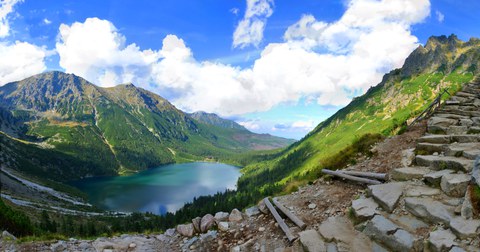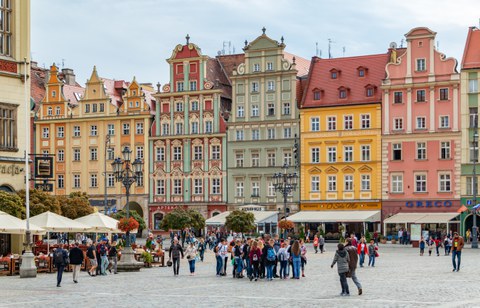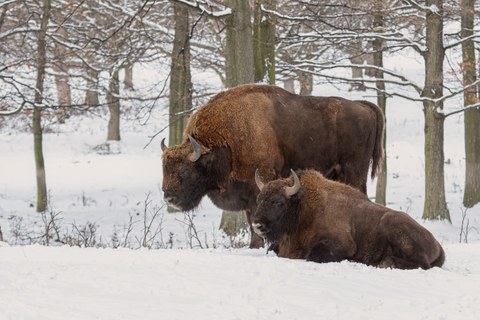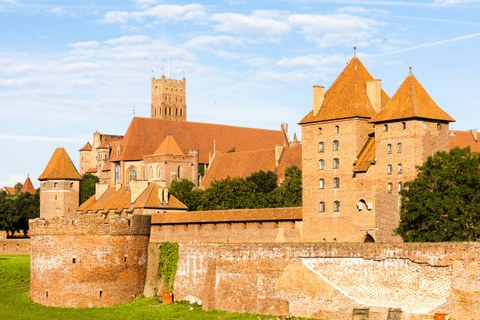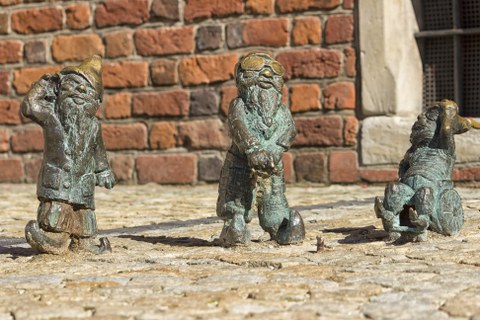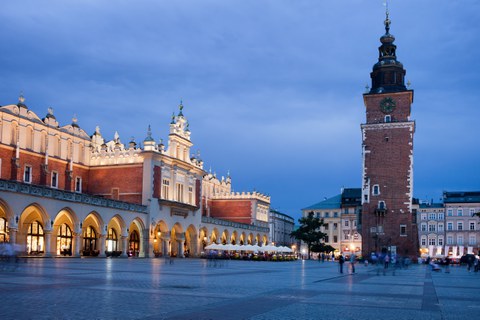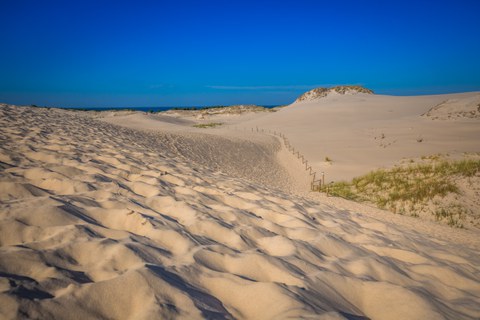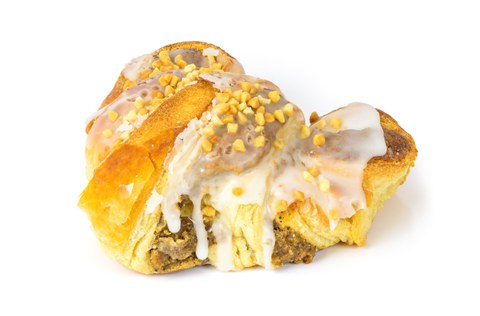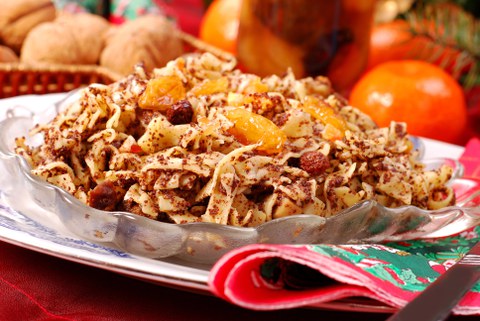Partnerland des Monats April 2024: Polen
Unser östliches Nachbarland Polen wird ganz zu Unrecht unterschätzt. Die Berge der Hohen Tatra und die Ostseeküste, die einzige Wüste Mitteleuropas und mehr Seen als in jedem europäischen Land außer Finnland machen Polen zu einem Paradies für Naturfans. In seiner wechselhaften Geschichte hat Polen viele Teilungen erlebt, gehörte zu verschiedensten Staaten und ist das Herkunftsland von Marie Curie und Fryderyk Chopin. Politisch ist Polen zwar dafür bekannt, in der EU ab und an anzuecken, aber auch hier zeichnen sich langsam entspanntere Zeiten ab.
Mit der Aktion "Partnerland des Monats" richten wir den Scheinwerfer auf die große Vielfalt der Länder, Regionen und Partneruniversitäten der TU Dresden, in denen unsere Studierenden ein Auslandssemester verbringen können.
Inhaltsverzeichnis
Allgemeine Zahlen und Fakten zu Polen
Hauptstadt: Warschau
Einwohner: 38 Millionen (2022)
Amtssprache: Polnisch
Nationalfeiertag: 11. November (Unabhängigkeit 1918 nach langer Teilung Polens)
Währung: Złoty (zł)
Weitere Zahlen, Fakten und Infos findest du auf Wikipedia, bei den DAAD-Länderinformationen oder auf den Seiten des Auswärtigen Amts. Touristische Infos gibt es z.B. bei info-polen.com und wikivoyage.
Kleiner Sprachexkurs
- Hallo / Tschüss – Cześć [tscheschtsch]
- Wie geht’s? – Jak leci? [Jak lätschi]
-
Ja / nein – Tak / nie [nje]
- Guten Tag – Dzień dobry [dschen dobre]
- Ich hätte gern … – Poproszę … [poprosche]
- Danke – Dziękuję [dschenkuje]
- Auf Wiedersehen – Do widzenia [do widsenja]
Polnisch ist nach Russisch und vor Ukrainisch die zweitgrößte slawische Sprache nach der Sprecheranzahl. Am engsten verwandt ist es mit dem Sorbischen, aber auch nah an Tschechisch und Slowakisch. Wie die meisten slawischen Sprachen hat auch Polnisch eine komplexe Grammatik und viele Zischlaute. Diese werden durch Zusatzbuchstaben oder Kombinationen wie cz oder sz wiedergegeben.
Polnisch und Deutsch haben eine gemeinsame Geschichte - viele Gebiete Polens waren lange polnisch- und deutschsprachig besiedelt. Kein Wunder also, dass so einige Wörter ausgetauscht wurden. Grenze, Gurke, oder etwas moderner, Lellek ("Ziegenmelker") kommen aus dem Polnischen. Polnische Wörter deutschen Ursprungs sind z.B. urlop (Urlaub), knajpa (Kneipe) und wihajster (Dingsda, von "wie heißt er").
Zum Glück musst du die Sprachbarriere nicht zu sehr fürchten. Auf Englisch kann man sich in Polen meist gut verständigen, vor allem mit jüngeren und städtischen Pol:innen. Ein paar Polnischkenntnisse sind aber sicher hilfreich beim Kennenlernen des Landes und freuen deine Bekanntschaften, selbst wenn die Grammatik noch nicht ganz sitzt. In Dresden gibt es Sprachkurse z.B. bei TUDIAS oder an der VHS.
Unsere Partneruniversitäten bieten eine große Auswahl von Kursen auf Englisch an und es ist absolut kein Problem, während des Auslandssemesters komplett auf Englisch zu studieren. Schau bitte vor deiner Bewerbung, was genau die jeweiligen Voraussetzungen an deiner Wunschhochschule sind. Bei TUDIAS kannst du dein Englisch gegebenenfalls aufpolieren, z.B. im Kurs zur Vorbereitung von Auslandsaufenthalten.
Wusstest Du schon, dass ....?
- Mordor in Polen liegt? Das dunkle Reich aus „Der Herr der Ringe“ ist Warschaus größtes Geschäftsviertel, Sitz zahlreicher multinationaler Konzerne und offiziell bekannt als Służewiec Przemysłowy. Der Spitzname Mordor entstand 2013 mit der Facebook-Seite eines genervten Angestellten, der sich Luft machte über Ellbogenmentalität, Leistungsdruck und den notorischen Berufsverkehrs im Viertel. Das fand viel Anklang – außer beim Warschauer Stadtrat, der sich bisher standhaft weigerte, den Namen offiziell zu machen.
-
in Polen eine Fischschuppe im Geldbeutel Glück bringt? Die schönsten Schuppen (natürlich gesäubert und getrocknet) des Weihnachtskarpfens sollen im nächsten Jahr für Wohlstand sorgen. Heiligabend ist in Polen das wichtigste Familienfest und die Zeit für viele Glücksbräuche. Wichtig ist auch das Teilen der Weihnachtsoblate als Zeichen von Gemeinschaft und Frieden. Die Oblaten werden auch an in der Welt verstreute Verwandte und Freund:innen verschickt, um sie am Fest teilhaben zu lassen.
-
das Element Polonium nach Polen benannt ist? Die berühmte Physikerin und Chemikerin Marie Curie nannte ihre Entdeckung nach ihrem Heimatland. Sie wurde in Warschau als Maria Skłodowska geboren und ist eine von nur zwei Personen, die nicht nur zweimal, sondern auch in verschiedenen Fachgebieten einen Nobelpreis erhielten. Polen kann noch mit einer weiteren Wissenschaftsgröße aufwarten: Nikolaus Kopernikus, Astronom der Renaissance, der das heliozentrische Weltbild begründete.
-
Bagels in Polen erfunden wurden? Das heute besonders in Nordamerika beliebte Gebäck wurde 1610 in einer jüdischen Quelle aus Krakau erstmals erwähnt. In Krakau gibt es heute noch eine ähnliche Spezialität namens Obwarzanek.
-
Polen eine Hochburg des Jazz ist? Während des Kalten Krieges war die Jazzmusik der USA in vielen Ostblock-Ländern ein Symbol für den Wunsch nach Freiheit, so auch in Polen. Von den kommunistischen Behörden misstrauisch beäugt und zunächst im Geheimen spielten die Pol:innen Jazz nach und entwickelten eigene Stile. Auch heute noch ist das Genre sehr beliebt und wird oft in Bars gespielt.
-
für Pol:innen der Namenstag wichtiger als der Geburtstag ist? Im katholisch geprägten Polen ist jedem Tag des Jahres ein weiblicher und ein männlicher Heiligenname zugeordnet. Früher wurden Kinder nach den Heiligen ihres Geburtstags benannt. Heute ist man frei bei der Namenswahl und feiert einfach zweimal. Dabei hat der Namenstag den Vorteil, dass in jedem polnischen Kalender steht, wann man wem gratulieren sollte.
-
in Polen Elche und europäische Bisons leben? Polen ist eins der ökologisch vielfältigsten Länder Europas und bietet Lebensraum für viele seltene Tiere, darunter auch Braunbären, Luchse, Biber und Wölfe. Zu ihren Rückzugsräumen zählt einer der letzten Urwälder Europas (im Białowieża-Nationalpark). Außerdem ist Polen mit seinen vielen Seenplatten und Sumpfgebieten das wichtigste europäische Brutgebiet für Zugvögel.
Erasmus+Kooperationen mit der TU Dresden
Eine Übersicht über alle Kooperationen der TU Dresden gibt es in unserer Datenbank. Dort kannst du auch in den Erfahrungsberichten bisheriger Austauschstudierender stöbern. Es lohnt sich außerdem oft, in der eigenen Fakultät Professor:innen zu fragen, die direkte Kontakte zur gewünschten Partneruni haben.
Unsere Kooperationen mit polnischen Partneruniversitäten laufen über Erasmus+. Die Ansprechpartner:innen und Bewerbungsfristen für deine Fakultät findest du hier. Speziell für Polen gibt es darüber hinaus attraktive Stipendien der Gemeinschaft für studentischen Austausch in Mittel- und Osteuropa, die sowohl fürs Studium als auch für Praktika genutzt werden können.
Universitäten in Breslau (Wrocław)
- Politechnika Wroclawska
- Mathematik
- Leichtbau- und Kunststofftechnik
- Informatik
- Elektrotechnik und Informationstechnik
- Maschinenwesen (gesamte Fakultät)
- Architektur
- Bauingenieurwesen
- Chemie und Lebensmittelchemie
- Uniwersytet Wroclawski
- Germanistik
- Politikwissenschaft
- Kommunikationswissenschaften
- Informatik
- Biologie
- Kunstgeschichte
- Physik
- Geschichte
- Slavistik
- Soziologie
- Geowissenschaften
- Internationale Beziehungen
- Universytet Ekonomiczny we Wrocławiu
- Wirtschaftswissenschaften
- IHI Zittau
- Uniwersytet Przyrodniczy we Wroclawiu
- Landschaftsarchitektur
- Geowissenschaften
- Akademia Medyczna im. Piastów Śląskich we Wrocławiu
- Medizin
- Zahnmedizin
- Dolnośląska Szkola Wyższa: Erziehungswissenschaft
Universitäten in Krakau (Kraków)
- Uniwersytet Jagielloñski
- Geschichte
- Kommunikationswissenschaften
- Wirtschaftswissenschaften
- Akademia Górniczo-Hutnicza im. Stanisława Staszica w Krakowie
- Physik
- Elektrotechnik und Informationstechnik
- Werkstoffwissenschaft
- Leichtbau- und Kunststofftechnik
- Politechnika Krakowska
- Landschaftsarchitektur
- Architektur
- Uniwersytet Rolniczy im. Hugona Kołłątaja w Krakowie: Forstwissenschaften
Universitäten in Warschau (Warszawa)
- Uniwersytet Warszawski
- Wirtschaftswissenschaften
- Anglistik und Amerikanistik
- IHI Zittau
- Politechnika Warszawska
- Elektrotechnik und Informationstechnik
- Leichtbau- und Kunststofftechnik
- Uniwersytet Kardynala Stefana Wyszyñskiego w Warszawie
- Katholische Theologie
- Forstwissenschaften
- Biologie
- Swps Uniwersytet Humanistycznospoleczny: Psychologie
- Akademia Obrony Narodowej: Verkehrsingenieurwesen
Universitäten in Danzig (Gdańsk)
- Uniwersytet Gdański
- Verkehrswirtschaft
- Hydrowissenschaften
- Chemie und Lebensmittelchemie
- Politechnika Gdanska: Werkstoffwissenschaft
Universitäten in Posen (Poznań)
- Uniwersytet Im. Adama Mickiewicza
- Slavistik
- Wirtschaftswissenschaften
- IHI Zittau
- Uniwersytet Ekonomiczny w Poznaniu: Internationale Beziehungen
- Uniwersytet Przyrodniczy w Poznaniu: Forstwissenschaften
- Akademia Medyczna im. Karola Marcinkowskiego w Poznaniu: Medizin
Andere Standorte
- Uniwersytet Szczecinski (in Stettin, Westpolen): Geschichte
- Zachodniopomorski Uniwersytet Technologiczny w Szczecinie (in Stettin, Westpolen): Bauingenieurwesen
- Uniwersytet Zielonogórski (in Zielona Góra, Westpolen): Deutsch als Fremdsprache
- Politechnika Śląska (in Gliwice, Südpolen): Leichtbau- und Kunststofftechnik
- Uniwersytet Slaski (in Katowice, Südpolen): Psychologie
- Wyższa Szkoła Biznesu w Dąbrowie Górniczej (Südpolen): Wirtschaftswissenschaften
- Uniwersytet Lódzki (in Łódź, Zentralpolen): Slavistik
- Politechnika Lubelska (in Lublin, Ostpolen): Maschinenwesen (gesamte Fakultät)
- Politechnika Białostocka (in Białystok, Ostpolen): Leichtbau- und Kunststofftechnik
Don't miss...
die Marienburg bei Malbork zählt als größte Burganlage der Welt zum Weltkulturerbe. Im 13. Jahrhundert wurde sie von den Rittern des Deutschen Ordens gegründet. Heute bietet sie mit ihren vielen Türmen, Brücken und Palästen in Backsteingotik Raum für ausführliche Erkundungstouren. Mit einer Führung kann man auch die Innenräume und vielfältigen Ausstellungen besichtigen, darunter eine berühmte Bernsteinsammlung. Jedes Jahr im Juli ist Malbork außerdem Schauplatz von Polens größtem Mittelalterfest, bei dem die Burg belagert wird. Unsere Partnerstadt Danzig liegt ganz in der Nähe, mit direkter Zugverbindung.
Zwerge suchen. In den Ecken von Breslau verstecken sich Hunderte Bronzezwerge, mal recht offensichtlich, mal gut verborgen. Sie treiben Schabernack und klettern an Laternen empor, schlafen, sind Müllmann, Gefangener oder Tourist – es gibt viel zu entdecken. Sie erinnern an die Orange Alternative, eine Protestbewegung der 1980er, die sich auf künstlerisch-skurrile Weise über das kommunistische Regime lustig machte. Ihre ersten Aktionen: Übertünchte Protest-Graffitis mit Zeichnungen von Zwergen kennzeichnen.
Krakau. Die ehemalige Hauptstadt ist heute eine lebendige Studentenstadt und gilt als kulturelles Zentrum Polens. Tagsüber kannst du die vielen Bauten aus Gotik und Renaissance in der historischen Altstadt bewundern, darunter die prächtig bemalte Marienbasilika. Abends lockt das Nachtleben mit zahllosen Events und Bars mit Livemusik. Im Viertel Kazimierz kannst du über die jüdische Geschichte Krakaus lernen, dabei lohnt ein Besuch im Museum der Fabrik von Oskar Schindler. Informativ und eindrücklich ist auch ein Tagestrip zum ehemaligen Konzentrationslager Auschwitz.
Polens Sahara. Die mächtigen Wanderdünen im Slowinzischen Nationalpark an der Ostsee bei Danzig sind in Europa einzigartig. Sie erreichen Höhen von bis zu 40 Metern und bewegen sich, vom Meereswind getrieben, mehrere Meter im Jahr ins Landesinnere, wo sie die angrenzenden Wälder verschlucken. Die Dünen sind natürlich das Highlight und am besten von Łeba aus zu Fuß oder Fahrrad zu erreichen. Aber auch der restliche Nationalpark ist einen Besuch wert. Auf den Wanderwegen kannst du Moorlandschaften, Wälder, Seen und Flüsse entdecken und wunderbar Vögel beobachten.
Posener Martinshörnchen naschen. Poznań ist für sein Martinsfest am 11. November bekannt, das mit Festumzügen und Feuerwerk gefeiert wird – und mit süßen Martinshörnchen. Ungefähr 700.000 Stück der Spezialität aus Plunderteig mit Mohn-Nuss-Füllung werden während des Feiertags verzehrt. Kosten kann man aber zum Glück auch außerhalb der Saison. Es gibt sogar ein Museum, wo auf unterhaltsame Art über die Tradition und Rezeptur des Hörnchens erzählt wird – mit Zertifikat zum Selberbacken der herkunftsgeschützten Leckerei.
Lasst uns kochen...
Wohl das bekannteste polnische Gericht sind Pierogi. Die klassischen Füllungen für die leckeren Teigtaschen bestehen aus Kartoffeln und Käse, Kraut und Pilzen oder Fleisch - typischen Zutaten der polnischen Küche. Pierogi sind so wichtig, dass sie sogar ihren eigenen Schutzheiligen haben.
Suppen werden in Polen gern in einem ausgehöhlten Brot serviert, z.B. die saure Mehlsuppe Żurek oder Bigos, ein deftiger Eintopf aus Fleisch und Kraut. Bei vielen typischen Gerichten gibt es Überschneidungen zur ostdeutschen Küche. So sind auch in Polen Kohl- und Rinderrouladen, das schnitzelartige kotlet schabowy und Klöße beliebt. Für Feiern aller Art wird gern salatka jarzynowa zubereitet, polnischer Kartoffelsalat.
Polen beansprucht für sich, wie auch Russland, die Wiege des Wodkas zu sein, der hier auch besonders viel getrunken wird. Das beliebteste alkoholische Getränk ist allerdings Bier, gern gesüßt mit Himbeer- oder Ingwersirup.
Kluski z makiem – Süße Mohnnudeln
Dieses beliebte Weihnachtsdessert – einem von traditionell 12 Gängen zu Heiligabend – ist im April eigentlich aus der Zeit gefallen. Die spannende Kombination von Nudeln mit süßem Mohn stammt aus Schlesien, einer heutzutage zum Großteil in Polen gelegenen Region, deren kulturelles Erbe aber auch in den umliegenden Ländern weiterlebt. Hier im Rezept werden hausgemachte Nudeln verwendet, Nudeln oder Schupfnudeln aus dem Supermarkt tun‘s aber auch. Süße Nudeln sind in Polen übrigens auch im Sommer beliebt, dann kommen sie mit Erdbeeren und Sahne auf den Tisch.
Zutaten:
Für die Nudeln:
- 320 g Weizenmehl
- 115 ml heißes Wasser
- 1 EL Pflanzenöl
- 1 kleineres Ei
- eine Prise Salz
Dazu:
- 300 g süße Mohnpaste (aus der Backabteilung)
- Trockenfrüchte und Nüsse nach Belieben – z.B. Rosinen, Mandeln, Orangeat, Feigen
-
½ Becher Sahne
Zubereitung:
1. Alle Zutaten für den Teig in eine Schüssel geben. Alles umrühren und zu einem Teig kneten, am besten mit der Hand. Er sollte weich, formbar und elastisch sein. Mit einem feuchten Küchentuch bedecken und 20 min ruhen lassen.
2. Eine Arbeitsplatte mit Mehl bestreuen, den Teig darauflegen und ebenfalls mit Mehl bestreuen. Ausrollen auf ca. 2 mm Dicke – um es zu vereinfachen, kannst du den Teig auch portionsweise nach und nach ausrollen. Dann den Teig mit einem Messer in breite Streifen schneiden. Mit Mehl bestreuen, damit sie nicht zusammenkleben.
3. Trockenfrüchte und Nüsse hacken.
4. Mohnpaste zusammen mit ½ Becher Schlagsahne in einen Topf geben und langsam unter Rühren erhitzen, sodass sie sich gut vermischen.
5. In einem großen Topf Wasser salzen und zum Kochen bringen. Wenn es köchelt, die Nudeln hineingeben und umrühren, damit sie nicht am Boden festkleben. Wenn die Nudeln an die Oberfläche steigen (nach ca. 3-4 Minuten), sind sie gar. Mit einem Sieb, Schaumkelle o.Ä. aus dem Wasser fischen.
6. Nudeln sofort mit der Mohnmischung vermischen, solange sie noch heiß sind. Mit den Trockenfrüchten und Nüssen garnieren – Smacznego!
(Vielen Dank an aniagotuje.pl!)
Kontakt und weitere Ansprechpersonen
Hattest du eine tolle Zeit in Polen? Hast du Tipps für Orte und Erlebnisse, die man nicht missen sollte? Gern teilen wir auch deine Erfahrungen – hier, über Social Media oder auch, wenn du Lust hast, bei Infoveranstaltungen mit anderen TUD-Studierenden. Melde dich bei uns:
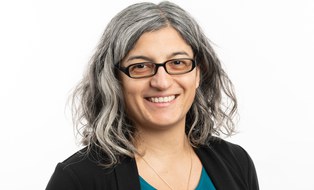 © Sven Ellger/TUD
© Sven Ellger/TUD
Beratung zum Studium im Ausland
NameFrau Federica Serra
Infocenter / TUD weltweit: Amerika, Australien und UK / PROMOS
Eine verschlüsselte E-Mail über das SecureMail-Portal versenden (nur für TUD-externe Personen).
Besuchsadresse:
Fritz Foerster Bau, Büro 156 Mommsenstraße 6
01069 Dresden
Postadresse:
Technische Universität Dresden International Office
01062 Dresden
Sprechzeiten:
- Dienstag:
- 09:30 - 11:30
- 12:30 - 14:30
- Donnerstag:
- 09:30 - 11:30
Bitte im SCS (FOE UG) anmelden.
Du möchtest dich aus erster Hand informieren?
Du willst mehr über Polen erfahren? Frag die Alumnibotschafter:innen der TU Dresden, die in vielen Ländern der Welt aktiv sind. Sie geben dir gerne Tipps und Hinweise für deinen Aufenthalt.
Kontaktieren ist ganz einfach: Auf der interaktiven Weltkarte zeigen Markierungspunkte die Städte an, in denen die Alumnibotschafter:innen leben. Zu jeder Person ist ein Kurzprofil mit Kontaktinformationen hinterlegt.
Partnerländer Archiv
Hast du ein Partnerland verpasst? Kein Problem! Hier sammeln wir alle Seiten für dich zum Nachlesen.
|
Europa (Erasmus+) |
|
|
Afrika |
|
|
Amerika |
|
|
Asien |
|
|
Australien und Ozeanien |
|

